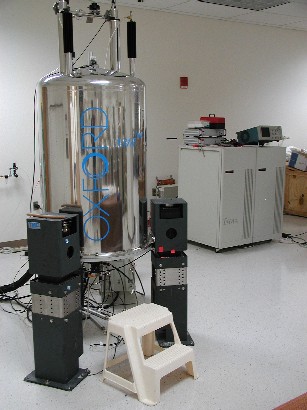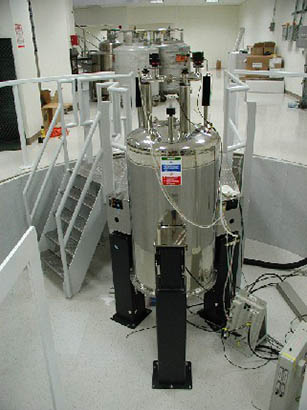Instrumentation and Services
Instrumentation Available
Spectrometers at CU Anschutz Medical Campus
- Bruker Avance Neo 600 MHz
- Varian INOVA 600 MHz
- 5 mm triple resonance 1H/13C/15N cold probe - sensitivity > 4000:1 (ETB)
- Varian 900 MHz Direct Drive NMR system
- 5 mm triple resonance 1H/13C/15N cold probe with Z-axis gradient
Spectrometers at CU Boulder Campus
- Varian 800 MHz Direct Drive NMR system
- 5 mm triple resonance 1H/13C/15N cold probe


Services Provided
1. Experimental Design and Training
Facility faculty members provide assistance in all aspects of experimental design, data collection and interpretation to CU Cancer Center members and other investigators. This includes design of protein constructs, choice of suitable solution conditions and appropriate data collection methods. Faculty members also provide training to PIs, post-doctoral and student researchers in the techniques of NMR sample preparation, data collection, data processing and data interpretation.
2. Solution Screening for Molecular Interactions
NMR spectroscopy is highly suited for screening intermolecular interactions at atomic resolution. A key advantage of NMR is that no apriori knowledge of the structure or NMR data is required, therefore it is poosible to screen for interactions between a protein/nucleic acid with other proteins or drug candidates to detect interactions prior to embarking on more detailed characterization of those interactions either with NMR spectroscopy or X-ray crystallogrpahy.
Facility staff will provide assistance in collecting and interpreting NMR data and provide interpretation of that data to examine interactions between biological macromolecules and other macromolecules or other molecules including potential drug targets.
3. Solution analysis of small molecules
The NMR Facility collects data and provides interpretation of that data to users studying small molecules such as potential drugs and other therapeutic agents. Data collected includes simple one-dimensional (1D) 1H, 13C and 31P spectra and two-dimensional (2D) COSY, NOESY, ROESY, TOCSY and HSQC /HMQC correlation spectra.
4. Structure Analysis of Proteins and Nucleic Acids
NMR staff will provide users assistnace in NMR data collection and analysis for the complete NMR assignments and structure determination of proteins and nucleic acids in solution. Becuase of the expertise and time required for this endeavour, these services are normally performed on a collaborative basis between personnel in the investigators laboratory and faculty/staff with expertise in NMR structure determination.